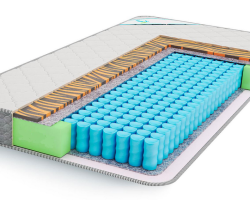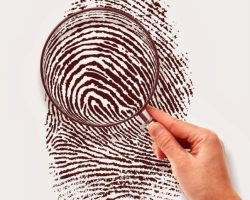If you do not know what to do with a heart attack, then read the article. It gives first aid advice.
Content
- How do acute states occur in heart diseases?
- The most common cause of heart attack
- Symptoms of a heart attack
- Pain outside the chest: a common symptom of a heart attack
- Fatigue, weakness: the main signs of a heart attack
- Rapid and irregular pulse: a symptom of a heart attack
- Increased sweating: a sign of a heart failure attack
- Fleet edema: a symptom of a heart attack
- What needs to be done with symptoms of a heart attack at home: first aid, tips
- Is a heart attack treated?
- Who is subject to heart attack?
- Is it possible to re -survive a heart attack?
- Cardon attack: what's next?
- What can be done to prevent a heart attack: prevention
- Video: heart attack. How to recognize and provide first aid with a heart attack? Project +1
- Video: How to provide first aid for a heart attack? It can save life. The score is for seconds
Many human lives end due to the fact that the first symptoms of a heart attack are not recognized. Due to the ignorance of what a person needs to quickly and correctly respond when recognizing these symptoms, a person’s life can quickly break off. But the patient can be saved if you react in a timely manner and call an ambulance.
Read on our website an article on how to distinguish intercostal neuralgia from a heart attack. You will learn about the signs of both conditions and what to do in one case or another.
In addition, there are conditions that can be mistaken for a heart attack. People begin to self -medicate instead of seeking medical help and getting adequate treatment. Read further.
How do acute states occur in heart diseases?
A heart attack, myocardial infarction and other acute states for heart diseases arise due to the fact that blood suddenly stops moving through blood vessels. Oxygen and other nutrients do not enter the heart muscle, so it is not sufficiently supplied with blood and begins to die slowly. Almost always, most acute states associated with the heart flow.
The most common cause of heart attack

There are the most frequent causes of heart attacks on the occurrence of which a person can affect. These include:
- Increased blood cholesterol - It is important to take a blood test at least once every six months to control this indicator. If blood cholesterol is increased (more than 6.5), then you should observe hypocholesterol diet table No. 10. It is also important to consult a doctor.
- High percentage of triglycerides in the blood - Increases the risk of obesity, the development of SAH. diabetes and other dangerous pathologies.
- Smoking - It harms health and develops heart disease.
- Diabetes, obesity - It is important to reduce weight. Even if you reduce weight by only 5%, then reduce the risk of heart attack by 20%.
- Alcoholism - As well as smoking harm health.
- Increased blood pressure - It is necessary to monitor the indicators of blood pressure, since with an increase (from 140/100) it does not affect the elasticity of blood vessels, the work of the heart, kidneys and other important organs.
- Hypodynamia - A person should move at least 30 minutes a day. This is the minimum that is necessary in order to normally function the cardiovascular system. If you do not engage in physical activity, then at least walk at least 3 km per day.
However, often the causes of a heart attack are those factors that we cannot influence. These include the hereditary factor and gender of man. It is believed that men often suffer from a heart attack than women.
Symptoms of a heart attack
Symptoms of a heart attack can be different, although in most cases they are specific and recognizable. Below we list all the signals of the body that should not be ignored and with their manifestations, you should immediately consult a doctor:
Pain and uncomfortable pressure in the chest:
- A typical symptom of a heart attack.
- It spreads to the neck and jaw towards the left shoulder and left hand.
Sudden dizziness, nausea and urge to vomit:
- The patient is better to sit in this case, so as not to fall.
Abundant sweating, weakness, feeling of suffocation:
- Lack of air is often accompanied by a strong fear of death.
It is worth knowing: However, pain, as the most typical symptom of a heart attack, for example, in diabetics, is very often absent. Nervous roots of people with sah. Diabetes conveying feelings of pain are damaged due to a high blood sugar.
Pain outside the chest: a common symptom of a heart attack

In most cases, the pain with a heart attack occurs, that is, begins in the chest area and spreads further, as described above in the text. However, the mentioned discomfort in the chest is not always a sign of a heart attack, instead there is an unpleasant sensation in other parts of the body.
Sometimes a person who has suffered a heart attack can feel pain in the left or right hand, and it depends on which part of the heart muscle was affected.
Fatigue, weakness: the main signs of a heart attack
Increased fatigue, especially among women, can be a sign of a heart attack.
- Fatigue usually appears a few days before the heart attack. Therefore, constant fatigue and exhaustion should not be interpreted as a consequence of the body fatigue, climatic conditions, etc.
IMPORTANT: If you feel frequent fatigue and exhaustion, see a doctor immediately.
Sometimes a person can feel a strong and inexplicable weakness a few days before a heart attack. In addition, such a feeling remains during a heart attack. Therefore, if walking or easy work is a very great effort for you, you need to immediately consult a doctor.
Rapid and irregular pulse: a symptom of a heart attack
What should not cause anxiety, at least, as doctors say, are periodic jumps of the heartbeat. During the day, we can move quickly, or vice versa, rest and be lazy. Accordingly, the heart rate will be different.
But if it happens that the pulse is constantly affected and unregulated, accompanied by dizziness, shortness of breath and a sense of weakness, then this can be a sign of a heart attack.
Increased sweating: a sign of a heart failure attack
If you feel cold sweat when you are alone, for example, when you sit and read the book, watch the TV, you may have a heart attack. Cold sweat, and in general, increased sweating, can be one of the common signs of a heart failure attack.
Fleet edema: a symptom of a heart attack
During a heart attack, it happens that a liquid accumulates in the body, which leads to bloating, ankles on the feet, and then to swelling of the legs. You can also suddenly gain weight and even lose your appetite. But excess weight will be water, not fat deposits, and the loss of appetite indicates that something in the body is wrong, and you need to urgently consult a doctor for advice.
What needs to be done with symptoms of a heart attack at home: first aid, tips
Statistics show that more than 50% of people, having suffered a heart attack, did not seek medical help at once, but waited for some time before calling an ambulance. This is a mistake. What needs to be done with any of the symptoms of a heart attack at home? Here is one and very important advice:
- Immediately call an ambulance and describe the problem that you have encountered.
There are situations when a person cannot independently call an ambulance, for example, there is no phone, etc. You can seek help from neighbors if the patient lives alone. It is important in this case, to deliver the patient to the nearest clinic or hospital as soon as possible. While the team of doctors is traveling, you can alleviate the patient's condition by providing first aid:

Is a heart attack treated?
A heart attack, that is, myocardial infarction, is cured today in most cases. There are two methods of treatment:
- Medicinesthat help to dissolve a blood clot in the bloodstream of the heart.
- Mechanical opening of a clogged blood vessel By introducing special equipment into it - cylinders, catheter, etc.
The most important thing is that you need to know about this disease is to start treatment in time. Even in the first hours, when the symptoms of this disease are recognized. However, the method of treating such a pathology will also depend on whether the patient suffers any other disease. For example, if the patient previously had a stroke, then a heart attack cannot be cured with drugs, but only by mechanical opening of a clogged blood vessel.
Who is subject to heart attack?
Today you can often hear that a young man died of a heart attack. Who is at risk?
- Statistical data show that from numerous forms of cardiovascular diseases in Russia from heart attack, seven people die every hour.
- Of these every eighth man from twenty -five to sixty -four years old.
Cardiologists notice that more and more young people suffer from heart disease. Heart diseases and blood vessels are manifested not only in men. These diseases very often affect both women and children.
Is it possible to re -survive a heart attack?
Of course, it can be repeated, especially if you did not follow all the tips of the cardiologist after the first heart attack.
Cardon attack: what's next?
After you suffered a heart attack, the most important thing is to listen to your cardiologist and follow his advice.
Of course, it is necessary to regularly take the drugs prescribed to you and monitor their effect on the body, especially if their use causes side effects. In addition, you need to regularly undergo a heart examination, as well as treat other diseases, if you have them.
You should know: If in the process of treatment, you noticed any new health problems, immediately contact a cardiologist. It is important to avoid repetition of an attack.
In addition, people who have suffered a heart attack and prescribed from the hospital must follow the doctor’s recommendations: change their diet, habits, etc.
What can be done to prevent a heart attack: prevention

As you know, it is better to warn the disease. In the case of heart diseases, prevention is important. Here's what you can do to prevent a heart attack:
Food:
- It has already been described above that one of the most common causes of a heart attack is a high level of cholesterol and triglycerides in the blood, obesity, etc.
- Therefore, it is very important that fats (primarily animal origin), sweets and salt enter the body in a limited amount.
- Eat vegetables and fruits, as well as food, steamed or in boiled form. So the dishes are more useful and easier to absorb.
Smoking:
- Nicotine is harmful to the human body, because it increases blood pressure, cholesterol and contributes to the formation of blood clots in blood vessels.
- People who smoked cigarettes for many years before a heart attack will best retain their health after recovery if they abandon this bad habit.
- However, if they continue to smoke, then they risk getting health problems again.
Obesity:
- One of the prerequisites for the heart attack is atherosclerosis, which is more common in people with obesity (a pathological process in which fatty substances, cholesterol, etc.) are deposited in the inner wall of the artery).
- In a situation where a person suffered a heart attack and suffers from obesity, it is very important for him to lose weight.
- However, strict and quick diets are not recommended, since they are harmful to health, so you need to lose weight gradually, on the advice of a doctor.
Physical activity:
- It is proven that people involved in sports live longer.
- Sports have a positive effect on human health, and physical exercises protect the body from a number of diseases and disorders.
- In this regard, it is very important that you practice at least light physical activity.
- But, if a person has increased the risk of developing a heart attack, it is necessary to consult a cardiologist who will determine with what intensity the exercises can be performed.
- That definitely will not be harmful is walking, a coward run and cycling in the fresh air.
Stress:
- Today, people are much more subject to stress due to their fast pace of life. People have almost lost their ability to relax.
- Given that stress has become an everyday part of a person’s life, it is safe to say that it is very harmful and dangerous to health.
- To avoid such nervous tension, you need to rest enough, listen to soothing music, play sports, surround yourself with positive people, be as much as possible in nature.
Medical examinations:
- The main thing is to regularly go to the doctor and take tests to control your blood pressure, sugar, cholesterol in the blood, and thus reduce the risk of a heart attack to a minimum.
- People with high blood pressure should regularly follow the prescribed therapy, and diabetics should follow the instructions of the doctor by diet and lifestyle.
The best recommendation is to regularly visit a doctor for examination, especially to the elderly. Thanks to this, you can prevent a heart attack and get first aid in a timely manner, if necessary. At the first signs of ailment, contact the doctor without delaying a trip to the hospital for a long time.
Video: heart attack. How to recognize and provide first aid with a heart attack? Project +1
Video: How to provide first aid for a heart attack? It can save life. The score is for seconds
Read on the topic:







